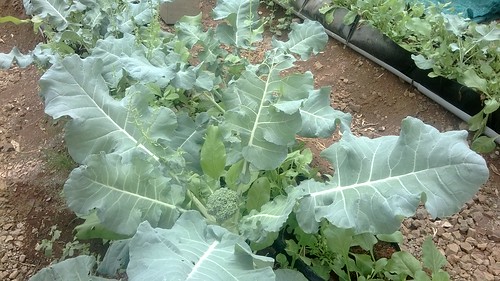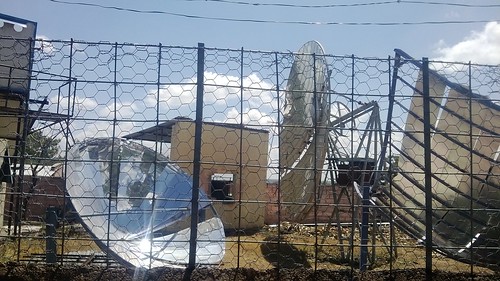'Development through Education and Education through development’ is the motto of Vigyan Ashram, a residential school situated in Pabal, Maharashtra. Dr.Kalbaug founded Vigyan Ashram on the principles of natural systems of learning.
A Ph.D in Food Technology from the University of Illinois, Chicago USA, Dr Kalbaug used to spend his weekends at ranches in rural areas near the University to observe and study the life of the farmers there. He noticed that they used science and technology not only in agriculture but also in their day to day lives. This is the learning he has brought to Vigyan Ashram.
He wanted to build a space for rural youth, particularly dropouts. The philosophy is that most of the things we can do and claim to be experts at are learned by keeping work as the center of learning. This is enabled in their courses, which are 80% practical and 20% theory.
Find out more about Vigyan Ashram in this video
The Ashram offers two courses - a Diploma in Basic Rural Technology (DBRT) and an Introduction to Basic Technology (IBT). Broadly, engineering, energy & environment, agriculture & animal husbandry and home & health are the four components taught. Approximately 30-50 students are admitted to the residential courses. Both these degrees require the student to earn at least Rs. 1000 before they are allowed to graduate. In a unique set up where they are surrounded by nature to think, the students apply basic concepts of physics, biology, chemistry and logic to set out as entreprenuers.
'If someone wants to be a mason, then they must know how to build a house', says Yogesh Kulkarni, Director of the Ashram.

The igloo-shaped house, commonly called the Pabal dome, is a a low cost desic-dome developed by the students a few years ago. It only costs Rs. 150/sqft and can be constructed in less than a fortnight. The uniform distribution of load and the round shape of the dome make it ideal for areas prone to earthquakes and cyclones. Another advantage of the dome is that it traps heat because of its structure, so it keeps the room warm in winters and cool in summers.
Every building, every wall is some students' practical exam, making this a true space of learning by doing. One year they developed a solar energy station for their kitchen based on information from the internet and encyclopedias. Till date, this is used to cook all their meals!
Pabal is located in Shirur Taluka, which gets about 650 mm of rainfall in a year. It was one of the severly affected villages in the drought of 2007. The students at Vigyan Ashram found out that farmers were encouraged to build farm ponds under the Rashtriya Krishi Vikas Yojana. But they didn't stop with just helping with this. Their experiments led them to the world of aquaponics!
What is aquaponics?
Aquaponics is simply the integration of hydroponics (cultivation of plants without soil) and aquaculture (fish farming). The nitrogen-fixing bacteria convert the ammonia into good nitrogen for the plants and therefore, the plants yield better. The school's website has more information about their aquaponics system.

Promptly, an experiment space-a pond with 5*3*1.5M (capacity of 70,000L) dimension - was set up within the campus and observations noted. Since a part of their curriculum involves working on local issues, this experiment was shared with farmers who stay nearby. The students monitor the growth of the plant, the size of the yield and the value of the crop in the market in order to complete their documentation.
This entire set up can be done for less than Rs. 1 lakh depending on the size of the fish pond and the area that needs to be cultivated. Although the Ashram has run this on a small scale, they hope to increase their capacity. Presently, their farm pond (dimension of 50*30*5M) holds up to 40 lakh litres of water.

Plants that are not grown with the help of the aquaponics are also monitored. Visibly, they show lesser growth. This case study that showcases the comparison is also shared with the farmers. Technical assistance of any kind is also provided should they show interest in it.
This unique space in Pabal is mentioned in MIT's FabCenter. Of the five Fab Labs in India, Vigyan Ashram is the only one which is present in a rural space. It is also a creative hub where students make 2W Solar Chargers, cutting edge technology for Dry Fruit Roll Cutters less than 2mm to making 3D printers!
This model of learning through creative thinking has now been taken to outside schools. Employees and students of the Ashram teach others in their own unique style for 4 hours every Thursday.
Director Yogesh Kulkarni says, "This model has brought in amazing results. Simple indicators like students attendance going up on Thursdays is enough to tell you that this system works. It is rewarding to see kids bright and up for developing things".














